





Phenylephine hydrochloride
Application instruction:
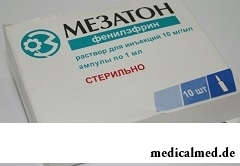 Phenylephine hydrochloride – medicine with vasopressor and alpha адреномиметическим action.
Phenylephine hydrochloride – medicine with vasopressor and alpha адреномиметическим action.
Form of release and structure
The phenylephine hydrochloride is issued in the form of solution for injections: transparent, colourless (on 1 ml in ampoules, in a pack of cardboard 10 ampoules complete with the ceramic cutting disk or the ampoule scarificator).
Active ingredient: Phenylephrinum a hydrochloride, in 1 ml – 10 mg.
Auxiliary components: injection water and glycerin.
Indications to use
- Vascular insufficiency (including owing to overdose of vazodilatator);
- Arterial hypotension;
- Allergic and vasculomotor rhinitis;
- Depressed cases, including toxic and traumatic shock.
Besides, the Phenylephine hydrochloride is applied when carrying out local anesthesia as vasopressor means.
Contraindications
Absolute:
- Hypertrophic subaortic stenosis;
- Fibrillation of ventricles;
- Pheochromocytoma;
- Hypersensitivity to drug.
Relative (it is necessary to observe extra care in connection with risk of development of complications):
- Arterial hypertension, hypertensia in a small circle of blood circulation, fibrillation of auricles, ventricular arrhythmia, an acute myocardial infarction, a heavy stenosis of the mouth of an aorta, closed-angle glaucoma, a hypoxia, a hypovolemia, a hypercapnia, a tachyarrhythmia, a metabolic acidosis;
- Occlusal diseases of vessels (including in the anamnesis): a Thrombangiitis obliterans (an obliterating thromboangitis), atherosclerosis, a Raynaud's disease, an arterial thromboembolism, tendency of vessels to spasms (including at freezing injury), a porphyria, a diabetes mellitus, deficit glyukozo-6-fosfatdegidrogenazy, a thyrotoxicosis, a diabetic endarteritis;
- Simultaneous use of monoamine oxidase inhibitors (MAO);
- Functional disturbances of kidneys;
- General ftorotanovy anesthesia;
- Age up to 18 years;
- Advanced age.
To pregnant women and the nursing women the Phenylephine hydrochloride can be appointed only according to strict indications, after assessment of a ratio of advantage and possible risks.
Route of administration and dosage
Solution the Phenylephine hydrochloride is entered intravenously (struyno or kapelno), intramusculary or subcutaneously.
At a collapse enter intravenously slowly struyno in a dose 0,1-0,3-0,5 ml, previously having parted 20 ml of 0,9% of solution of sodium of chloride or 5% of solution of a dextrose. If necessary enter one more dose.
Kapelno intravenously the drug is administered in a dose 1 ml, previously having parted 250-500 ml of 5% of solution of a dextrose.
Intramusculary or subcutaneously the Phenylephine hydrochloride is appointed by the adult in a dose of 0,3-1 ml by 2-3 times a day, to children 15 years at arterial hypotension are more senior during spinal anesthesia – in a dose of 0,5-1 mg on each kilogram of body weight.
For reduction of the inflammatory phenomena and vasoconstriction of mucous membranes drug (in concentration – 0,125, 0,25, 0,5, 1%) is used for greasings or instillations.
When carrying out local anesthesia on each 10 ml of solution of anesthetic add 1% of solution of the Phenylephine hydrochloride on 0,3-0,5 ml.
The most admissible doses for adults:
- Intravenously: one-time – 5 mg, daily – 25 mg;
- Intramusculary and subcutaneously: one-time – 10 mg, daily – 50 mg.
Side effects
- Cardiovascular system: increase in arterial pressure, tachycardia, arrhythmia, fibrillation of ventricles, cardialgia, bradycardia;
- Central nervous system: sleeplessness, sensation of fear, concern, dizziness, weakness, paresthesias, tremor, spasms, headache, hematencephalon;
- Others: skin ischemia in the place of an injection, pallor of face skin; in isolated cases – allergic reactions, an escharosis and a necrosis (at subcutaneous injections and in case of hit of solution in fabric).
Special instructions
During treatment control of indicators of the electrocardiogram, arterial pressure, blood circulation in the place of an injection and extremities, the minute volume of blood is necessary.
Before the beginning or during treatment of depressed cases correction of a hypoxia, a hypovolemia, hypercapnia and acidosis is required.
In case of a medicamentous collapse patients with arterial hypertension have enough to support systolic arterial pressure at the level below usual on 30-40 mm hg.
Permanent disturbances of a heart rhythm, the expressed tachycardia or bradycardia, sharp increase in arterial pressure demand cancellation of the Phenylephine hydrochloride.
To prevent a repeated lowering of arterial pressure after drug withdrawal, the dose is recommended to be reduced gradually, especially after long infusion. However if systolic arterial pressure decreases to the level of 70-80 mm hg, infusion is resumed.
It must be kept in mind that the vasoconstrictors applied in addition to local anesthetics at the same time with the means stimulating patrimonial activity (ergotamine, vasopressin, methylergometrine, ergometrine), or intended for correction of arterial hypotension at the time of delivery can entail permanent increase in arterial pressure in a puerperal period.
With age the quantity of adrenoceptors, sensitive to Phenylephrinum, decreases. MAO inhibitors, increasing pressor effect of sympathomimetics, can promote emergence of vomiting, development of arrhythmia, headaches, hypertensive crisis. For this reason for patients who in the previous 2-3 weeks accepted MAO inhibitors doses of sympathomimetics should be reduced.
During treatment by the Phenylephine hydrochloride it is necessary to refrain from occupations the types of activity demanding the speed of mental and motor reactions including from driving of motor transport.
Medicinal interaction
Possible reactions of interaction in case of simultaneous use of the Phenylephine hydrochloride and other medicines:
- Anti-hypertensive drugs, diuretics: decrease in their hypotensive effect;
- Monoamine oxidase inhibitors (Procarbazinum, furasolidone, селегилин), tricyclic antidepressants, ergot alkaloids, adrenostimulyator, methylphenidate, oxytocin: strengthening of pressor action and aritmogennost of Phenylephrinum;
- Inhalation anesthetics (halothane, энфлуран, метоксифлуран, изофлуран, chloroform): increase in risk of development of heavy ventricular and atrial arrhythmia;
- Nitrates: reduction of their anti-anginal effect, decrease in pressor effect of Phenylephrinum, risk of development of arterial hypotension;
- Thyroid hormones: a synergism of effect of drugs and strengthening of the risk of development of coronary insufficiency connected with it, especially at patients with coronary atherosclerosis;
- Alpha adrenoblockers, fenotiazina: decrease in hypertensive effect;
- Methylergometrine, to doksapra, ergotamine, oxytocin, ergometrine: strengthening of expressiveness of vasopressor action;
- Beta adrenoblockers: decrease in the cardiostimulating activity; at use of Reserpinum – risk of development of arterial hypertension.
Terms and storage conditions
To store at a temperature to 25ºC. Not to subject to light influence. To protect from children.
Period of validity – 3 years.
Each person has not only unique fingerprints, but also language.

Cold – a state known to everyone which is followed by cold, cough, high temperature, a pharyngalgia. Often перво...
Section: Articles about health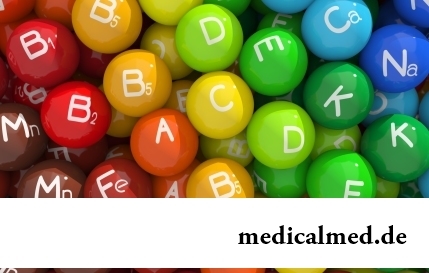
Vitamin complexes belong to the most popular drugs, probably, in our country there is no person who was not hearing about advantage of vitamins and never their accepting. The more vitamins, the better, we consider and as it appeared, cruelly we are mistaken. So l...
Section: Articles about health
The advantage of swimming for the person is so high that this sport is not only the most popular, but also is widely applied in medicine and rehabilitation processes. If you look for for yourself the occupation allowing pleasantly and to spend time, then swimming with advantage – the fact that it is necessary for you. And give learns several facts about swimming....
Section: Slideshow
Herpes simplex of the first type (the infectious disease which is shown periodic bubble rashes on is called...
Section: Articles about health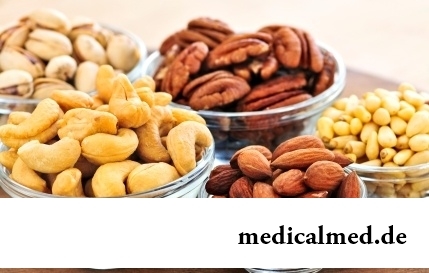
When overcomes feeling of hunger, and an opportunity to have dinner fully is absent, having a snack − the meals, small on volume, stabilizing sugar level in blood comes to the rescue. The relation of nutritionists to having a snack is more often negative, but only because in кач...
Section: Articles about health
Osteoporosis this general disease which main sign is decrease in density of a bone tissue. On distribution width it takes the fourth place among noninfectious diseases. The illness develops at mature age more often: in our country about a third of women and a quarter of men suffers from it 50 years are more senior....
Section: Articles about health
Olive oil – the product capable to make a powerful contribution to health of the person if it includes it in the diet. Rich vitamin...
Section: Articles about health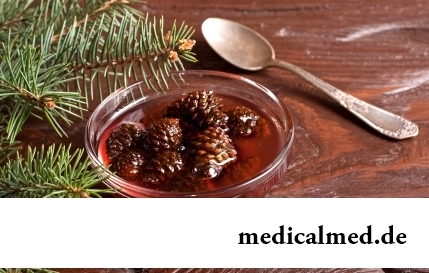
The pine is one of the most widespread plants of our woods. Its needles and pitch not without reason called by "gallipot" were since ancient times used for strengthening of protective forces of an organism, treatment of avitaminosis, anemia and many other diseases. In recent years wide п...
Section: Articles about health
History of mankind contains several tens of epidemics whose emergence was compared by eyewitnesses and historians to doomsday. The most terrible of them claimed the lives of millions of people, having made even the whole people to the person of the earth. What they − the diseases striking terror? Whether it managed to the person to find treatment, or he is still powerless before forces of nature?...
Section: Articles about health
Life does not indulge the modern woman special emotional comfort and carelessness. Fatigue, troubles at work, misunderstanding...
Section: Articles about health
Work of a brain is extremely complex and in many respects is not studied yet. It is confirmed also by the features of thought processes which are shown when the person sleeps. Let's tell about some of them....
Section: Articles about health
Bees – really unique beings. Practically all products of their life activity are used by the person. Since the most ancient times medicinal properties of honey and other substances received in the course of beekeeping are known. The fact that all these products are recognized not only national, but also official medicine is especially significant. About influence and routes of administration of bee "drugs" the speech in this article will also go....
Section: Articles about health
The number of long-livers is very small. One person from 5 thousand lives up to age of 90 years, and the centenary boundary steps only about...
Section: Articles about health
Stability of a hormonal background is one of the most important conditions of preservation of health of the woman. At the same time endocrine system – the thin device extremely sensitive to any external influences. Changes of an image жиз can become the reason of hormonal failure...
Section: Articles about health
You are office worker, the driver, the fan of winter sports or do not think of life without bicycle? You lead a slow-moving life and you move on the city only on the car? You have no constant partner and you do not love the protected sex? Attention! You unambiguously are a potential target for prostatitis. It is not necessary to panic, it is necessary to work....
Section: Articles about health
Statistically, in Russia about 34% of citizens smoke. Most of consumers of tobacco has problems about health sooner or later...
Section: Articles about health
The Genetically Modified Organisms (GMO) are plants or animals (as a rule, agricultural) to whose genotype purposeful changes were made. Opposition of supporters and opponents of inclusion of such organisms in foodstuff всег...
Section: Articles about health
Radiological methods of a research are applied in medicine more than hundred years, and thanks to them millions of lives were saved. In many cases without X-ray it is impossible to make exact idea of a condition of bodies and fabrics, it is correct to make the diagnosis. Nevertheless, many myths about researches such continue to exist. Let's consider the most widespread of them....
Section: Articles about health
The way of life of people promptly changes from year to year: if about ten years ago the personal computer was not in each family...
Section: Articles about health
It would seem, to buy drugs in Moscow does not make a problem – a drugstore, and not one, is available for each resident of the capital within walking distance. And, nevertheless, Internet drugstores become more popular – what it is possible to explain such phenomenon with? Actually m reasons...
Section: Articles about health
Each woman has preferences in the field of use of those goods which help us to look good, feel young and effective. Besides: selection process of favourite perfume, shampoo or decorative cosmetics already lightens the mood and serves as a peculiar stress medicine. Happens very offensively when the acquired perfumery and cosmetic products not only do not meet our expectations, but also becomes the reason of problems with health. Sources неприятн...
Section: Articles about health
Small appetite at the child – the complaint which pediatricians should hear practically from each mother. Most often it is carried to разр...
Section: Articles about health
Good appetite was always considered as a sign of good health. The correct operation of the mechanism which is responsible for the need for nutrients and receiving pleasure from process of its satisfaction demonstrates that the organism functions without special from...
Section: Articles about health
Partial and the more so full loss of hearing significantly reduces quality of life. Difficulties with communication lead to loneliness and isolation. The person who badly hears experiences difficulties with social and professional implementation, quite often has problems in private life....
Section: Articles about health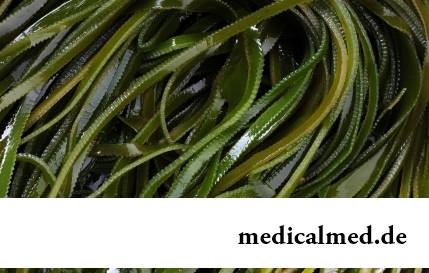
For residents of the countries of Southeast Asia various algas are an obligatory component of a daily diet. Their priest...
Section: Articles about health
All are familiar with cold, and practically everyone believes that he has sufficient knowledge and experience that correctly to treat it. In practice most of people makes mistakes in attempts to get rid of rhinitis, and divides numerous delusions it....
Section: Articles about health
The sudden heat on all body which is followed by perspiration and a cardiopalmus – the phenomenon familiar to many people. Most often such states called by "inflows" result from nervous or physical overworks and disappear right after rest. However in certain cases similar reaction of an organism can speak about diseases which need treatment. What? About it below....
Section: Articles about health
